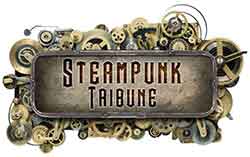Emperor Norton I posing for in full regalia
Continuing with intriguing Victorian-era personages, as a one-time resident of the “City by the Bay”, I present its most colorful resident of the 19th century, Emperor Norton I!
Emperor Norton
Born 1818; Died 1880
Age 54; 59″, 150-160 lbs. A slightly pudgy, balding man with a thick mustache and a beard which does not extend onto his cheeks, wearing a military uniform with large gold epaulets and a plumed hat; generally carries a cavalry saber and a walking stick.
Advantages: Patron (the people of San Francisco), Reputation (City “mascot”)
Disadvantages: Age, Dead Broke, Severe Delusion (“I am the emperor of the United States”)
Quirks: Doesnt like his city to be referred to as “Frisco”; Doesnt drink alcohol (or very infrequently); Shy around women
Equipment
Emperor Norton generally has the cavalry saber mentioned above, although its sharpness and effectiveness as a weapon (are questionable). He may also have a cane or walking stick. He carries at all times his own 50 cent bonds, redeemable at 7% interest in the year 1880, which he will sign and sell to anyone interested in purchasing one. In cash, he carries perhaps $5 at any given time.
This is Emperor Norton in 1875, at the peak of his “career”. Before 1870, he will not have bonds to sell and will be significantly thinner and weaker without this source of income. During the Civil War period, his uniform may be either Union or Confederate; he took neither side in the matter (since both sides were part of his empire), and wore both colors to demonstrate this.
Emperor Norton I seated with his walking stick
Biography
Emperor Norton was born Joshua Abraham Norton of London in 1818. His family moved to the Cape of Good Hope when he was two, and he lived there until he inherited his fathers property at the age of 30. Norton then sailed to San Francisco to seek his fortune through real estate speculation and commodities trading. At the height of his fortune, he is estimated to have been worth about $250,000, which translates to about two and a half million 1999 dollars.
In 1852, Norton risked almost all of his liquid assets attempting to corner San Franciscos rice market. Luck turned against him, and the loss, combined with the failure of certain investments and an economic depression, forced him into bankruptcy by 1856. There is little record of his activities for the next three years, but it is believed that he survived by continuing his business on a much small scale.
On September 17, 1859, Joshua Norton submitted an announcement to the San Francisco Bulletin, which the editor printed for its amusement value. In it, he declared himself Norton I, Emperor of the United States. Subsequent proclamations disbanded Congress, dissolved the Republic, and added the title “Protector of Mexico” in response to Napoleons III invasion of Mexico. There were also many false proclamations printed in various city newspapers as their staff humorists tried to get in on the joke.
As emperor, Norton was able to survive by eating at free lunch counters and “taxing” his Masonic brothers for the cost of his lodging. He spent his time walking around San Francisco, reading about scientific discoveries and playing chess at the Mechanics Institute, and occasionally travelling to other California towns for various ceremonies. He quickly became a local celebrity, and business owners found that they had to treat him with respect in order to stay in the peoples good graces. Thus, His Majesty received free tickets to a private box at all theater openings, was able to travel on railroads, streetcars, and ferries at no expense, and was occasionally presented with a new hat, stick, or uniform by various persons and organizations.
One of Emepror Norton I’s bonds
In 1869, the transcontinental railroad was complete, and tourists began coming to California. Norton was already well-known across the United States, the legend of the beggar emperor having spread via newspapers. Seeing a chance to capitalize on the tourist industry, he began selling bonds bearing his signature for fifty cents, redeemable in 1880 at 7% interest. These bonds were treasured souvenirs, and their sale allowed Norton to vastly improve his standard of living.
For 10 years, Norton enjoyed a fair degree of comfort and even respect. He was still a beggar, but policemen and soldiers saluted him, and wealthy bankers invited him to eat lunch with them. Norton always acted the part of an emperor, behaving with regal dignity and precisely following standards of etiquette.
On January 8, 1880, he dropped dead in the street of a stroke. Ten thousand people turned out to view his body as it lay in state, and he was buried with full ceremony, his funeral paid for by donations from the citys millionaires.
Image of Emperor Norton I presiding of the funeral of his dog, with himself dressed as the Pope
Encountered
Historical accounts of Norton describe him as very gentle but firm. He will gladly sell bonds if asked, but he will not offer them that would demonstrate a need for money, which is improper for an emperor. He has a wide (though incomplete) knowledge of science, and can provide reasonably correct opinions on any topic that a gentleman would be expected to know about. He will be unfailingly polite to women, and will observe all proprieties when dealing with anyone of elevated rank.
In general, apart form his insistence on being called “Your Majesty”, and his potential to become irate at anyone demeaning his imperial city with the name “Frisco”, anyone meeting Emperor Norton should come away with a feeling that the man might not be as daft as people claim.
Stoddard, W. (1999) – Gurps Who’s Who I, pg. 102-103, SJG:Austin
[edited for removal of game specific content]
[Note – to this day, the use of the term “Frisco” will generate irritation from any resident of San Fran!]
Further reading:
Drury, William: Norton I, Emperor of the United States
Gaiman, Neil: “Three Septembers and a January”, collected in Sandman: Fables and Reflections
http://en.wikipedia.org/wiki/Joshua_A._Norton
http://www.sfmuseum.org/hist1/norton.html
http://www.zpub.com/sf/history/nort.html
http://home.swipnet.se/~w-40977/coolpeople/norton.html



